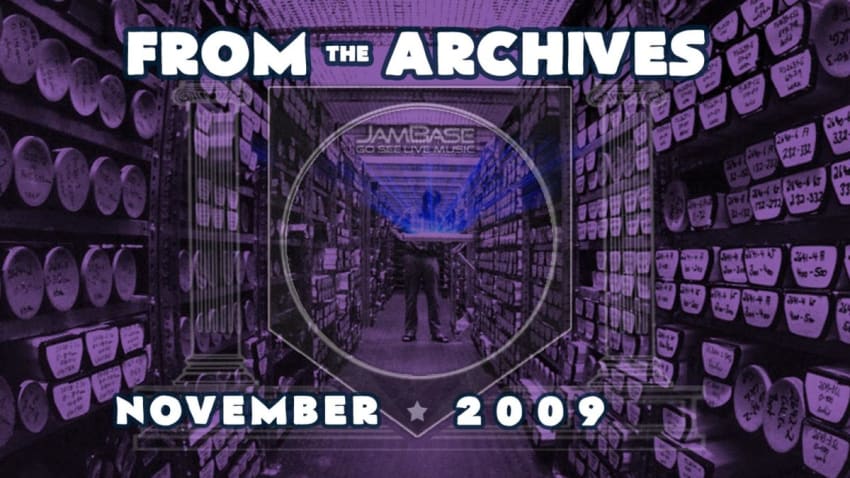Ornette Coleman | 11.08 | San Francisco
By Team JamBase Nov 16, 2009 • 3:33 pm PST

Ornette Coleman :: 11.08.09 :: Davies Symphony Hall :: San Francisco, CA
 |
After being ushered to our plush velvet seats and handed programs by men in bowties, a well dressed individual introduced the band, noting that it was 50 years to the month since Coleman first burst onto the jazz scene with his residency at The Five Spot in New York in 1959, igniting controversy throughout the jazz world with his avant-garde playing. The band then took the stage, the 79-year-old Coleman looking humble and gracious in a maroon suit. Picking up his trademark white plastic alto sax, he looked to his bandmates for the cue, and then it began.
Within the first 30 seconds it was clear that this would not be any sort of typical jazz concert. The band came flying out of the gates at breakneck speed with a rollicking free-form composition that sounded like it was going to run off its rails at any moment. Coleman’s musical world has always existed outside of typical tonality and melody, and it was clear that he would hold nothing back tonight. His most recent record, 2006’s Pulitzer Prize-winning Sound Grammar, is a good representation of this band’s current sound, but even the music on that record sounds surprisingly accessible and grounded in tradition compared to the outer realms that Coleman took us to on this night. With his son Denardo Coleman behind him furiously pounding the kit and propelling the music forward, Ornette blew wild, jagged harmonic phrases which transcended any form of typical melody, entering the realm of pure expression.
 |
And then there was Ornette. Standing thin and spry center stage, it was easy to hear that he was the musical leader of the band. His wild, foreign phrasing wrapped knots around your head, unbound by any musical reins that we understand. His gnarled horn lines acted like a searchlight probing into the musical unknown. Wherever he ventured, his band innately and effortlessly followed suit, all flowing together in free consciousness. At times he would switch to trumpet, other times violin, which he would bow with a soul-wrenching, haunting drone. One song began with Falanga bowing a Bach fugue on bass, then morphed into a showcase for Coleman’s violin, on which he tweaked-out before switching to sax and bringing it home. Another tune brought the music down to earth a bit with some standard jazz melodies, which Coleman eventually morphed to new heights with his angular, left-of-center sax solos.
The shape-shifting fluidity and psychic chemistry of the musicians’ playing could be taken on a number of levels. On casual listen, their dense free-form improvisation seemed chaotic and distorted; at times everyone seemed to be playing separate, dissonant parts that didn’t fit together. But once fans moved into the right headspace to hear this alien language, once immersed in the sound the music washed over bodies, and you could hear the alchemy that was occurring. The stream-of-consciousness pouring out of this band was incredible. All the musicians were swimming in a deep musical ether of complexity, which few could truly understand, but the feeling and soul that came out of such beautiful cacophony was astounding. This music was clearly coming from a deep, deep place in them, a place that transcended western tonality as we know it. Through their technical harmonic understanding and musical chemistry, this band had found real order in chaos, and succeeded in expressing themselves through unadulterated sound.
JamBase | Unique
Go See Live Music!
